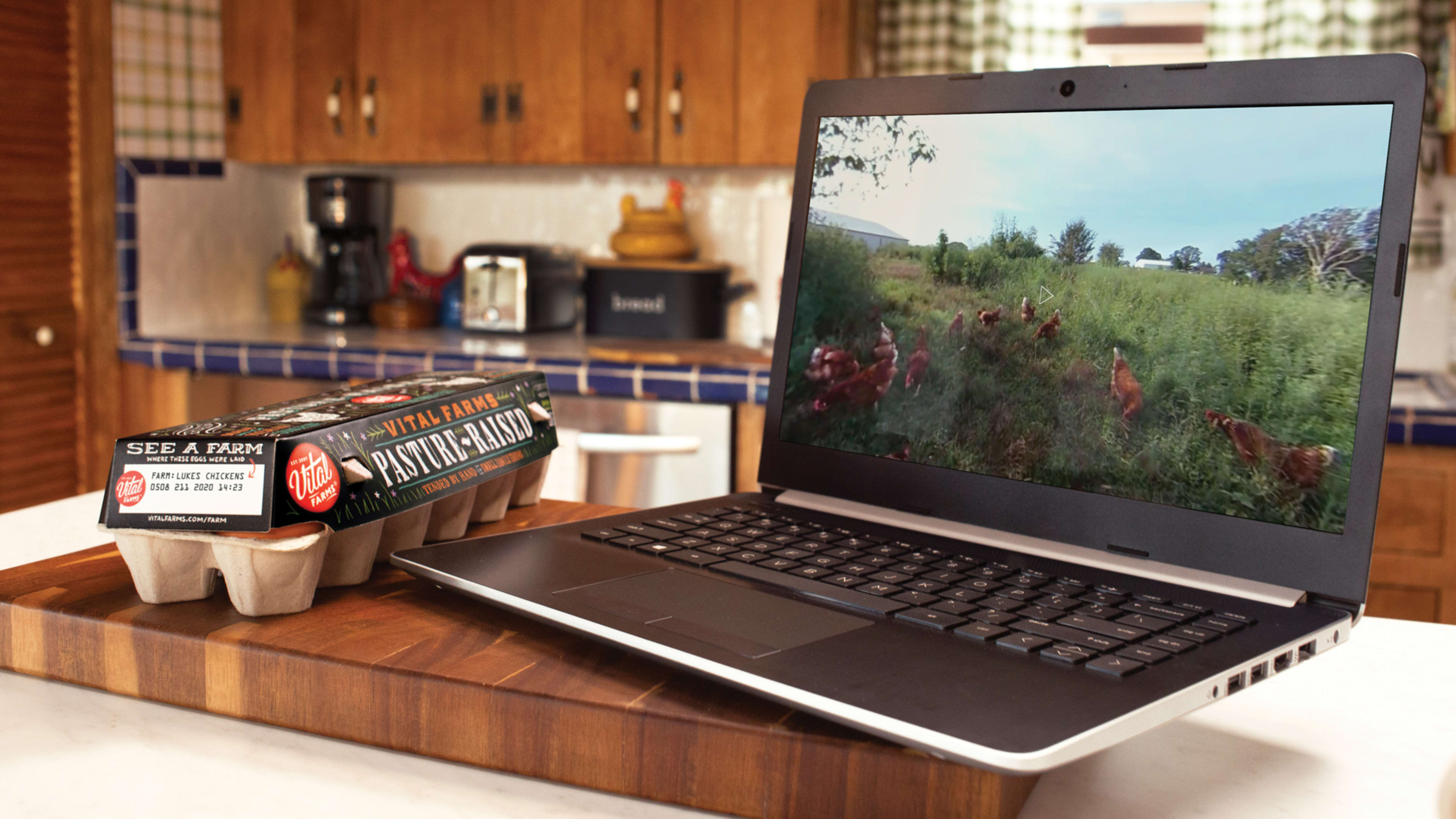Terms such as cage-free, free-range, and pasture-raised turn up a lot when you’re shopping for eggs. But do you really know what they mean? What does a pasture-raised chicken have that a free-range one does not? Vital Farms now has the answer. The company is letting customers take a 360-degree look at the specific farm their eggs came from, as part of what it’s calling its Traceability program.
When you buy a carton of Vital Farms eggs, you’ll see the name of the specific small family farm those eggs are from (Vital Farms works with more than 200 farms across the country) on that carton. Now, you can visit the Vital Farms website, enter the name of that farm, and see a video on which you can click and drag to get a 360-degree view of the hens grazing.
“What we asked our people to do was take footage [of] the best representation of that farm, in the area of that farm that best represents the environment of that farm,” says Russell Diez-Canseco, Vital Farms president and CEO. “That will include being able to see the barn where the chickens go at night . . . it’ll include some sense of the pasture where those birds will spend their days. Some videos might show trees on some farms, some videos will show less trees.” Ultimately, customers will get the chance to “see and hear the hens that lay the eggs that they’re enjoying.”
More and more, consumers want to know where their food is coming from, and that transparency is an important part of Vital Farms, Diez-Canseco says. The company says this program to provide customers directly with a 360-degree look at their farms is an industry first. “I can’t speak to why we don’t see other companies doing this in the United States,” he says. “But it was, frankly, a pretty easy choice for us to do it because we’re proud of what we do and we’ve got nothing to hide.”
Vital Farms was founded in 2007 as an “ethical food company.” Vital Farms’ conditions are certified by an outside company, Certified Humane. There is currently no legal definition from the USDA for “pasture raised” for eggs to meet before they’re on grocery shelves, so Vital Farms worked with Certified Humane to create a pasture-raised standard: a minimum of 108 square feet of roaming room for each bird. Vital Farms is currently the only egg purveyor accredited by Certified Humane as “pasture raised.”
In the 360-degree videos, hens walk over grass and leaves, pecking at the ground and clucking periodically. There are no cages in sight. The videos are not live; they were recorded when Vital Eggs sent out teams to their farms with VR equipment—and to make sure the farmers are “meeting our high standards,” Diez-Canseco says. (These are, of course, videos approved by Vital Farms; an independent video shoot might reveal different things.)
The scene may not be surprising to regular Vital Farms customers; “I think a big reason why people choose to buy our eggs is that they expect that this is how we raise the chickens that lay those eggs,” he says. But the company has noticed that there is a lot of confusion for consumers around what they’re getting based on packaging claims, especially when it comes to eggs.
What is surprising to egg consumers, says Diez-Canseco, “is when people who buy other eggs find out that what they’re getting doesn’t look like the video version.” And it’s true that a lot of videos to come out of farms have been less than idyllic. Activists have shared footage of hens cramped in overcrowded cages and crammed into sheds. “I wish more of the videos we saw were positive,” Diez-Canseco says, “and over time we’re hoping to change that in this country.”
Recognize your brand’s excellence by applying to this year’s Brands That Matter Awards before the early-rate deadline, May 3.
